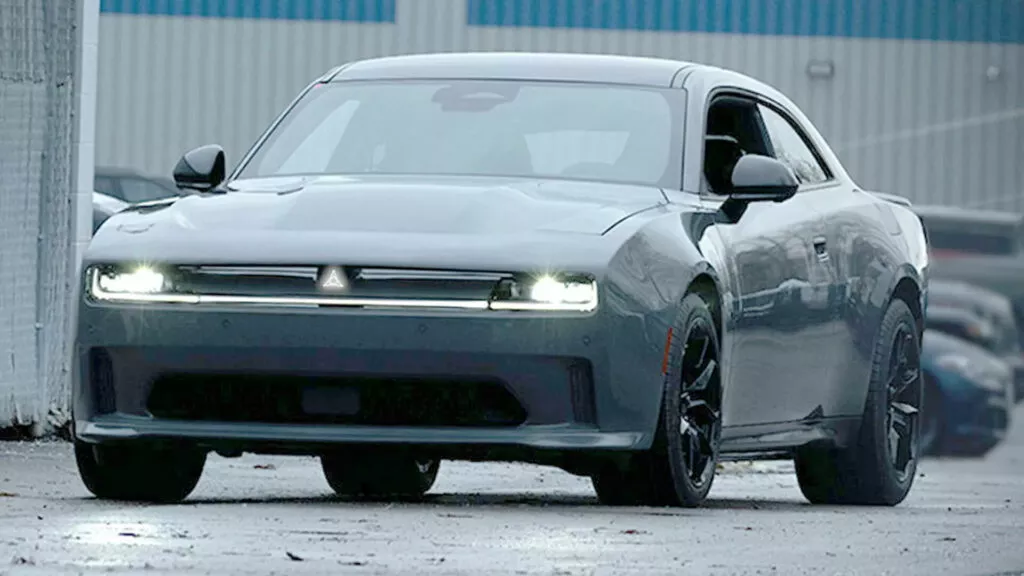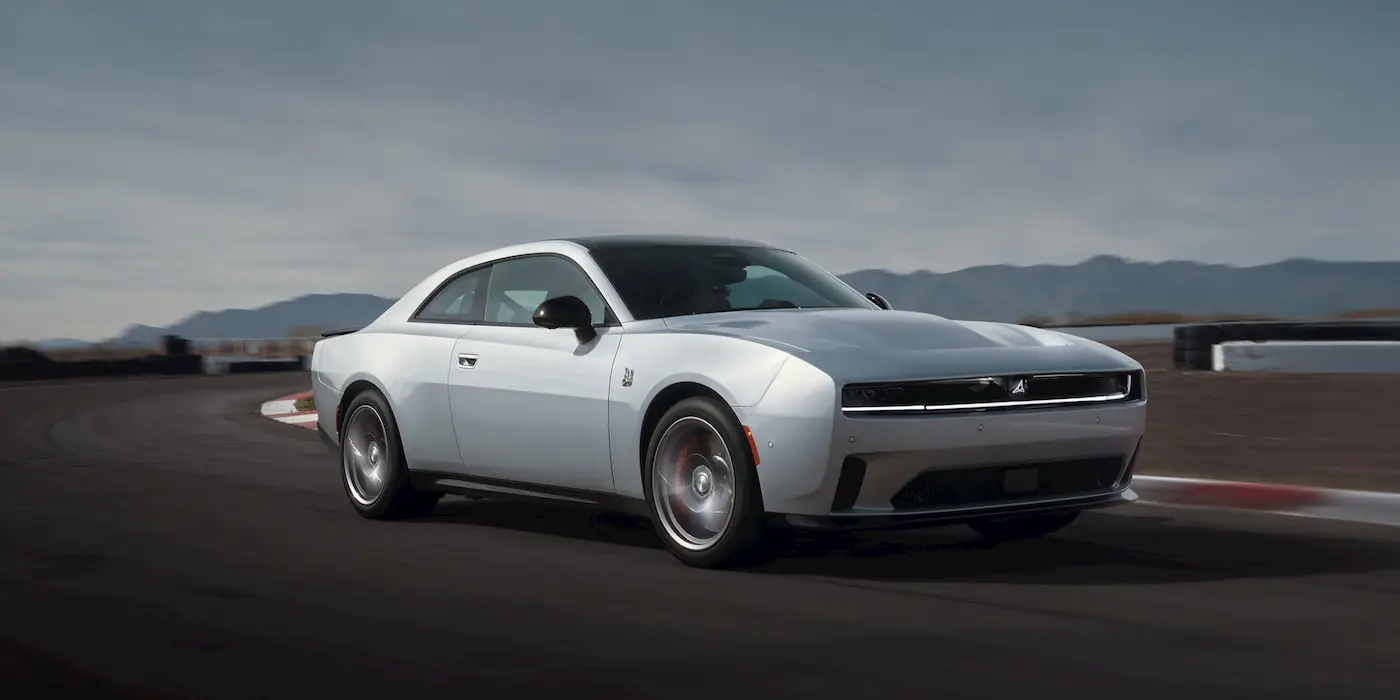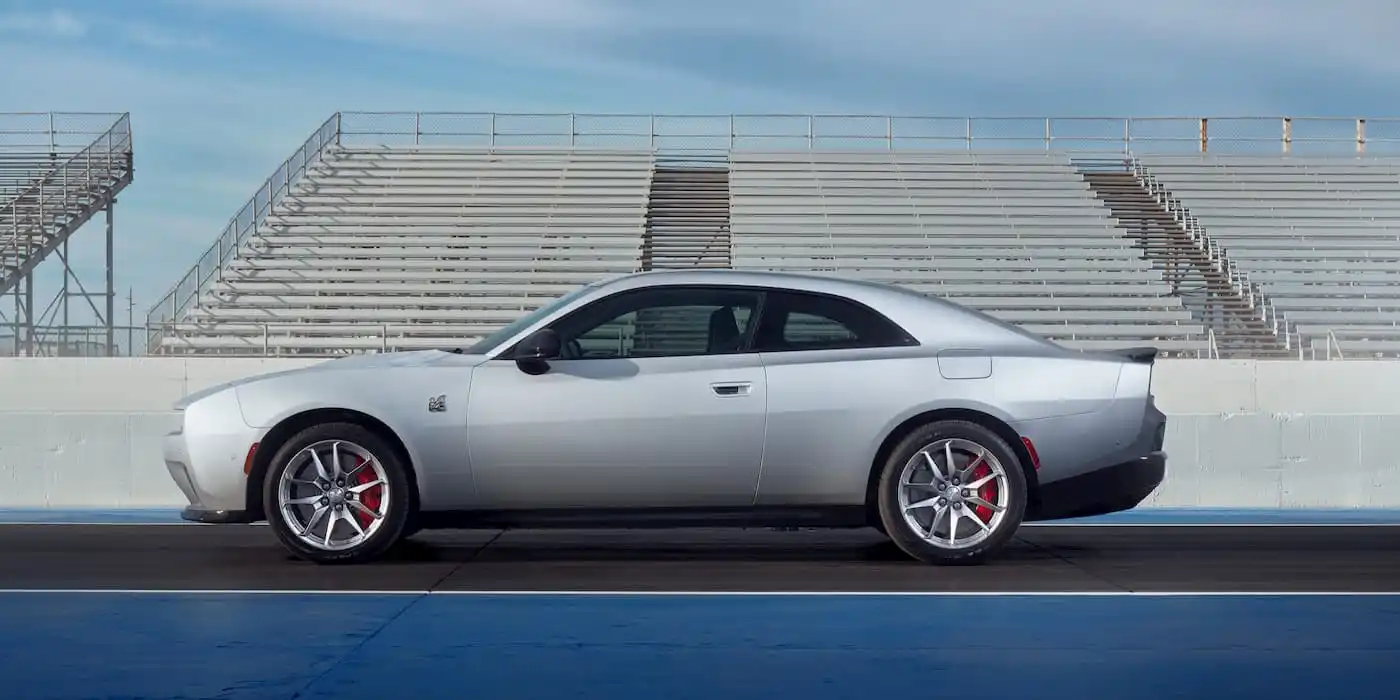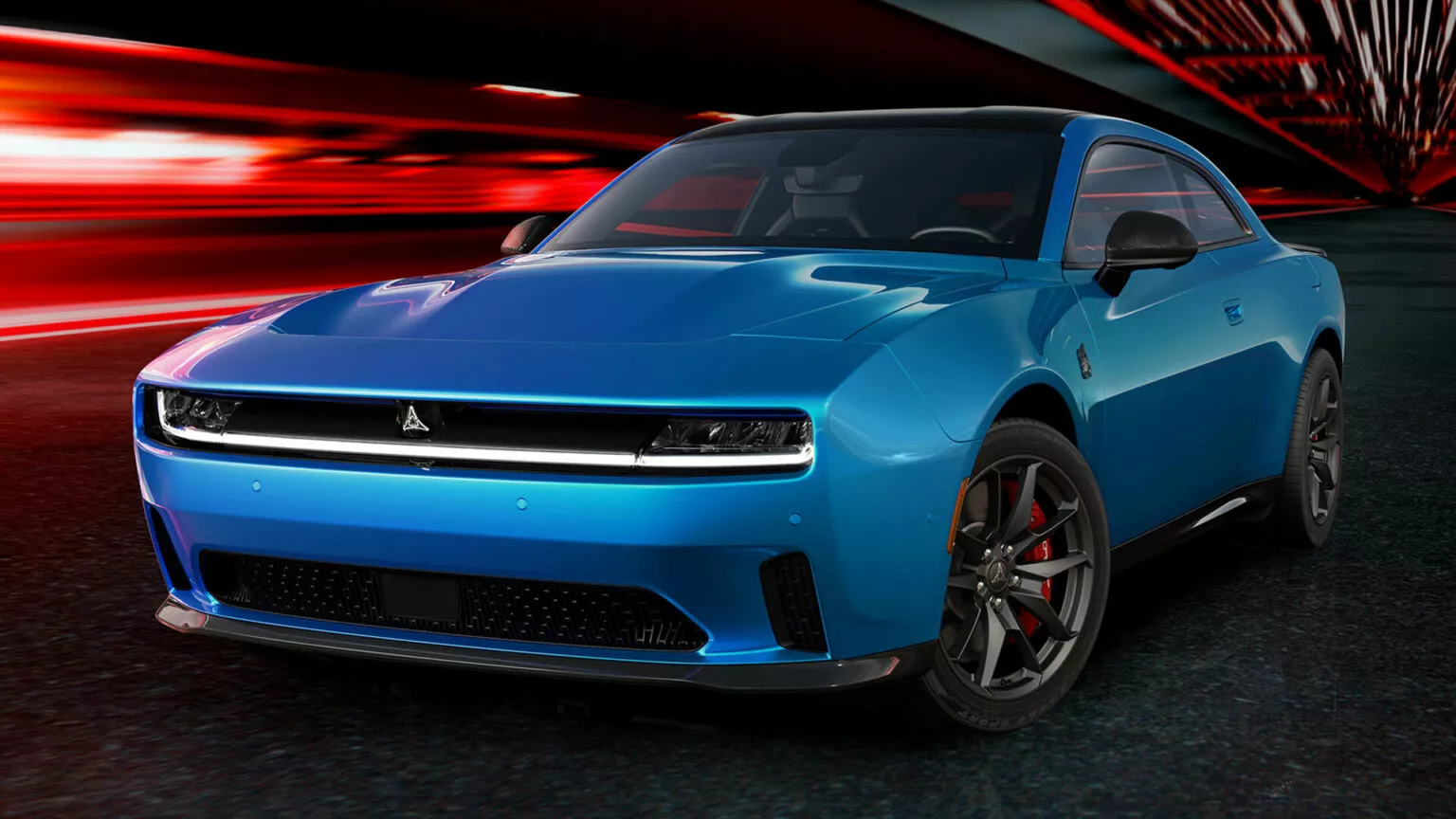Dodge is set to unveil the Charger Daytona on March 5, marking a shift from its recent crossover-only strategy. The announcement was made by Dodge’s Matt McAlear during the J.D. Power Auto Summit, describing the vehicle as the “next generation of muscle.”
Senior Vice President of Sales and Marketing for Dodge/SRT, Matt McAlear, expressed the company’s ambition to “set a new bar,” emphasizing that the production model will closely resemble the 2022 concept. Teaser photos have hinted at a familiar-looking muscle car, with the production model featuring modifications such as adjusted bumpers, larger mirrors, and updated lighting units. Additional changes include new door handles, a thicker B-pillar, and a more angular license plate recess.
See also: Stellantis Unveils STLA Large Platform for Battery Electric Vehicles
Dodge CEO Tim Kuniskis previously revealed plans for the production EV, which will launch with three power levels, reaching up to the 800V Banshee propulsion system. Kuniskis emphasized that this system promises to outperform a Hellcat in key performance measures, with a standard all-wheel-drive system enhancing both performance and all-weather capability.
While the initial concept showcased an electric-only design, reports suggest the production model may offer a twin-turbo 3.0-liter Hurricane inline-six engine, known for its outputs of 420 hp and 540 hp in the 2025 Ram 1500.
See also: Dodge CEO Hints At More Electric Muscle Cars In The Pipeline
Dodge has kept details under wraps, but it is confirmed that the Charger Daytona will utilize the EV-focused STLA Large platform. Stellantis has assured that this architecture can support hybrid and internal combustion propulsion systems without compromising vehicle capabilities. Furthermore, the platform has hinted at the potential for “extreme power” surpassing existing Hellcat V8s, with the capability to achieve 0-100 km/h (62 mph) acceleration in the 2-second range.
More information is expected to be revealed next month. Vehicles based on the STLA Large platform are anticipated to feature battery packs ranging from 85 to 118 kWh, providing an impressive range of up to 500 miles (805 km).





